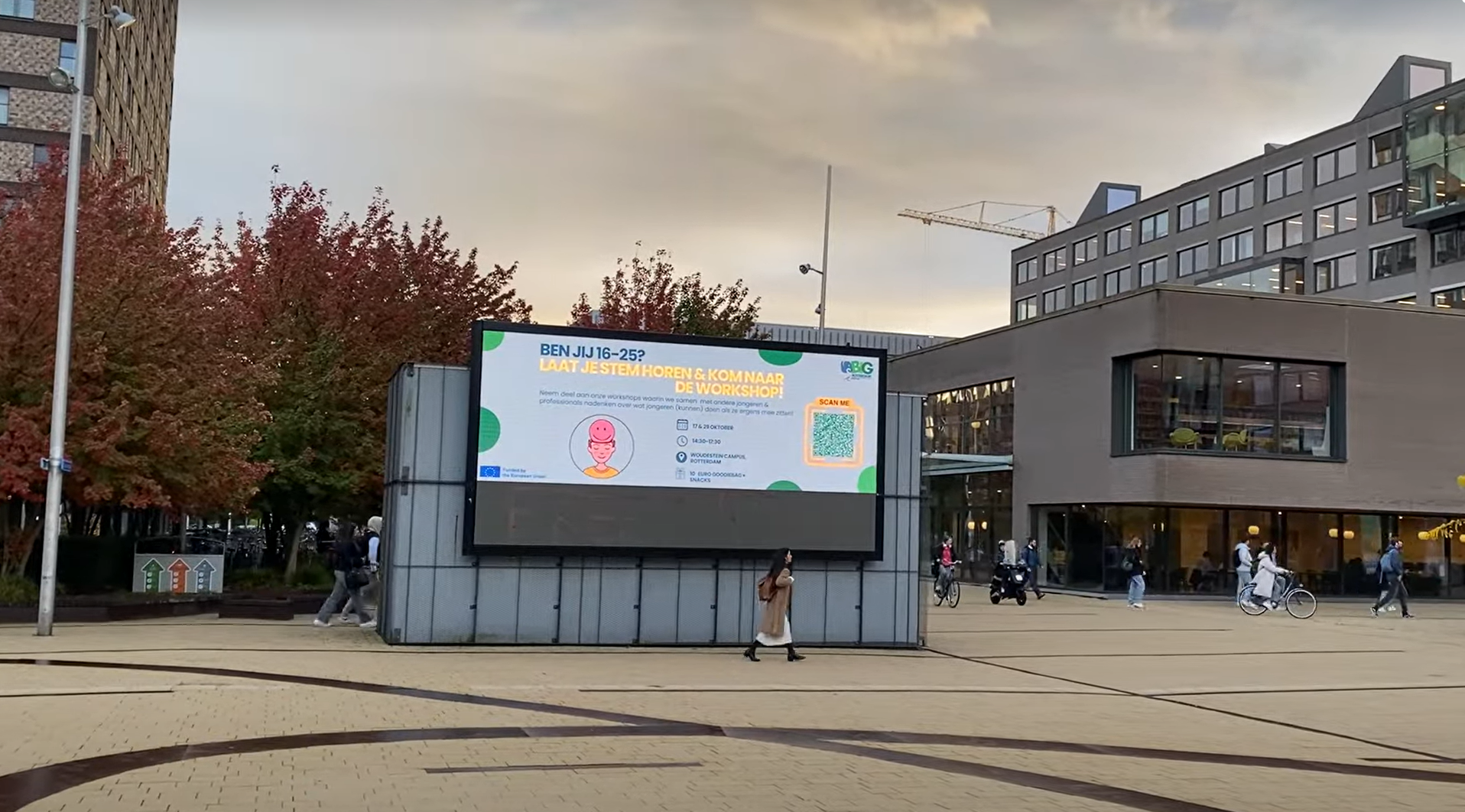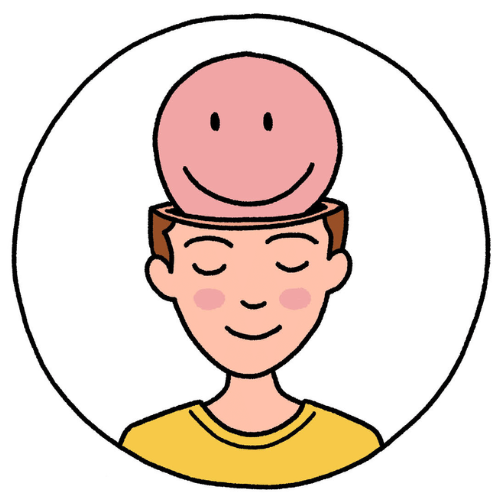Project Description:
Through systems thinking and behavioural science. The goal of Reach Out Right is to map behaviours, influences, and actors on this topic and develop strategies for behaviour change. This project involves collaboration between adolescents and young adults from diverse backgrounds and professional stakeholders, such as policymakers and mental health professionals. Over five weeks, young citizen scientists will perform five short online tasks with questionnaires. These activities are designed to stimulate reflection and research on how they perceive mental health help-seeking and how it is expressed in their social environments. Some young citizen scientists and other stakeholders will be invited to engage in participatory workshops. In these workshops, data gathered from the questionnaires will be used to build a behavioural systems map and develop strategies for behaviour change. This project ensures that the voices of young citizen scientists are heard by professionals, providing new perspectives on mental health help-seeking in the Netherlands.
Project Type: Kick Starting Grant
Theme: Justice and Equity, Health
Mentor: Stefanie Schuerz
Reach Out Right: Empowering Youth to Navigate Informal Mental Health Support Systems
Reach Out Right is a citizen science initiative aimed at understanding the mental health help-seeking behaviours of young people aged 16–25 in the Netherlands. Led by BIG’R (Behavioural Insights Group Rotterdam) and supported by Erasmus University Rotterdam, the project brings together a diverse group of stakeholders—including researchers, health professionals, policymakers, parents, teachers, and young people—to address the barriers to accessing informal mental health support.
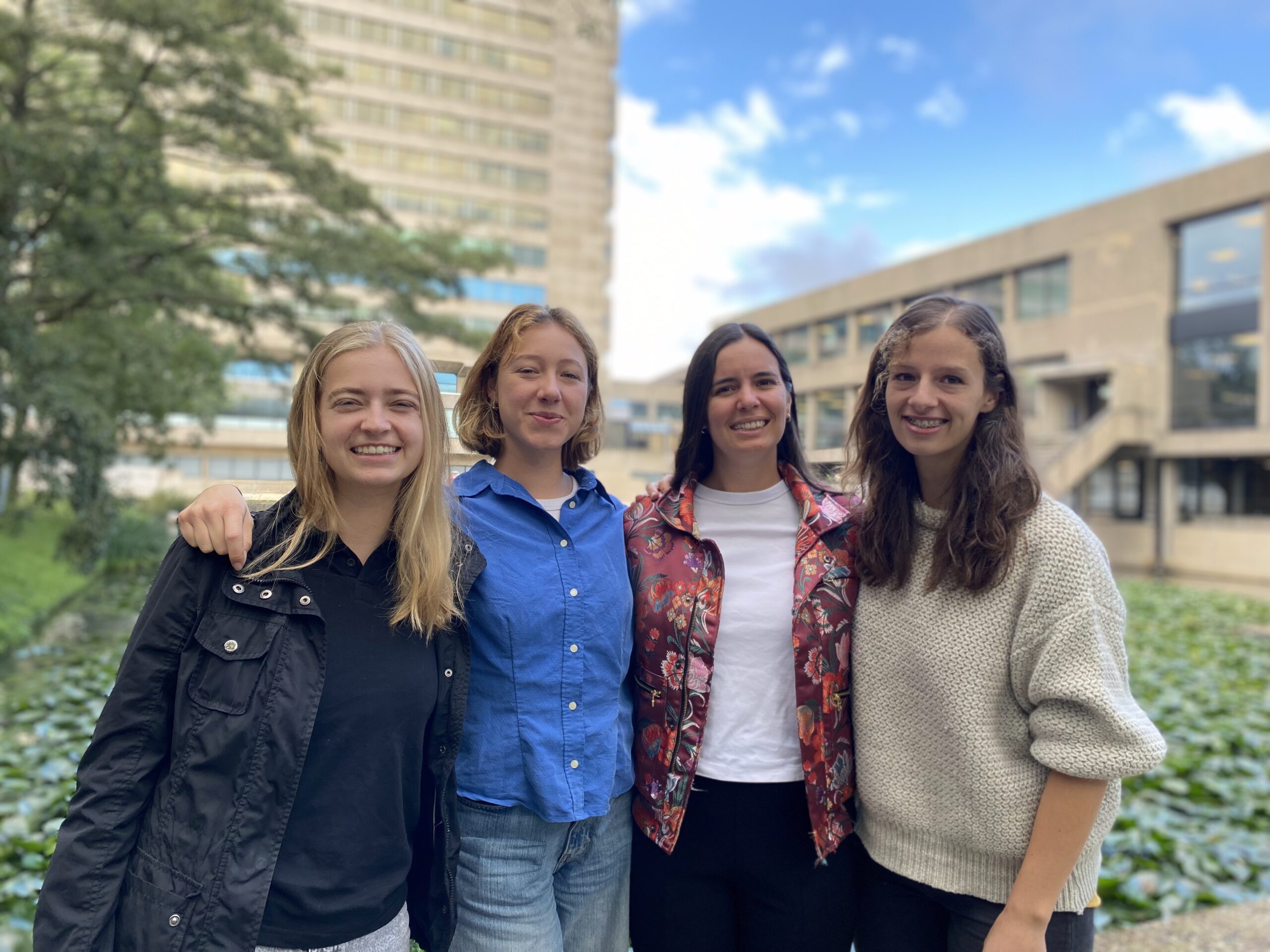
The initiative combined weekly online tasks with participatory workshops to delve into this complex issue. Over four weeks, participants engaged in tasks designed to explore their behaviours when feeling unwell, the factors influencing their decision to seek help, and the role of key actors. These tasks included activities such as searching for mental health information online, evaluating its trustworthiness and usefulness, and prioritising the causes and consequences of key influences. The design of these tasks drew on insights from academic literature and responses collected in earlier phases of the project.
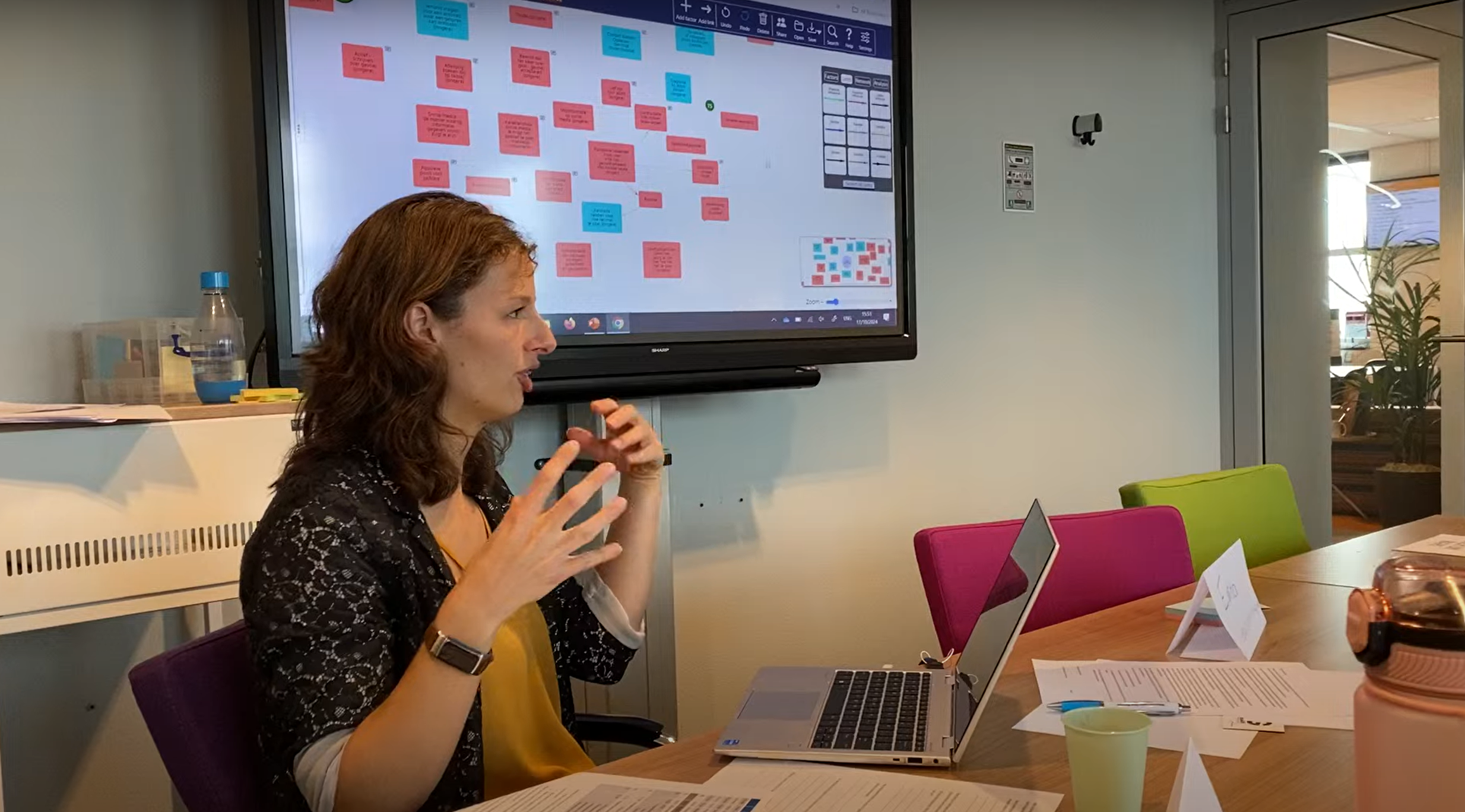
The participatory workshops invited citizen scientists to co-create a behavioural systems map. This map identifies key behaviours, barriers, and enablers within informal support systems while highlighting the crucial roles of friends, family, and online communities. By offering actionable insights, the map serves as a practical tool for driving systemic change and improving the accessibility of support.
The impact of these activities is well summarised by one young workshop participant:
”I found it very valuable that everyone could openly and honestly share their experiences. The different perspectives broadened my understanding of the issue, especially the realisation that your environment can significantly impact your mental health. I now appreciate how fortunate I am to have a supportive network of friends and family who genuinely care about how I am doing.
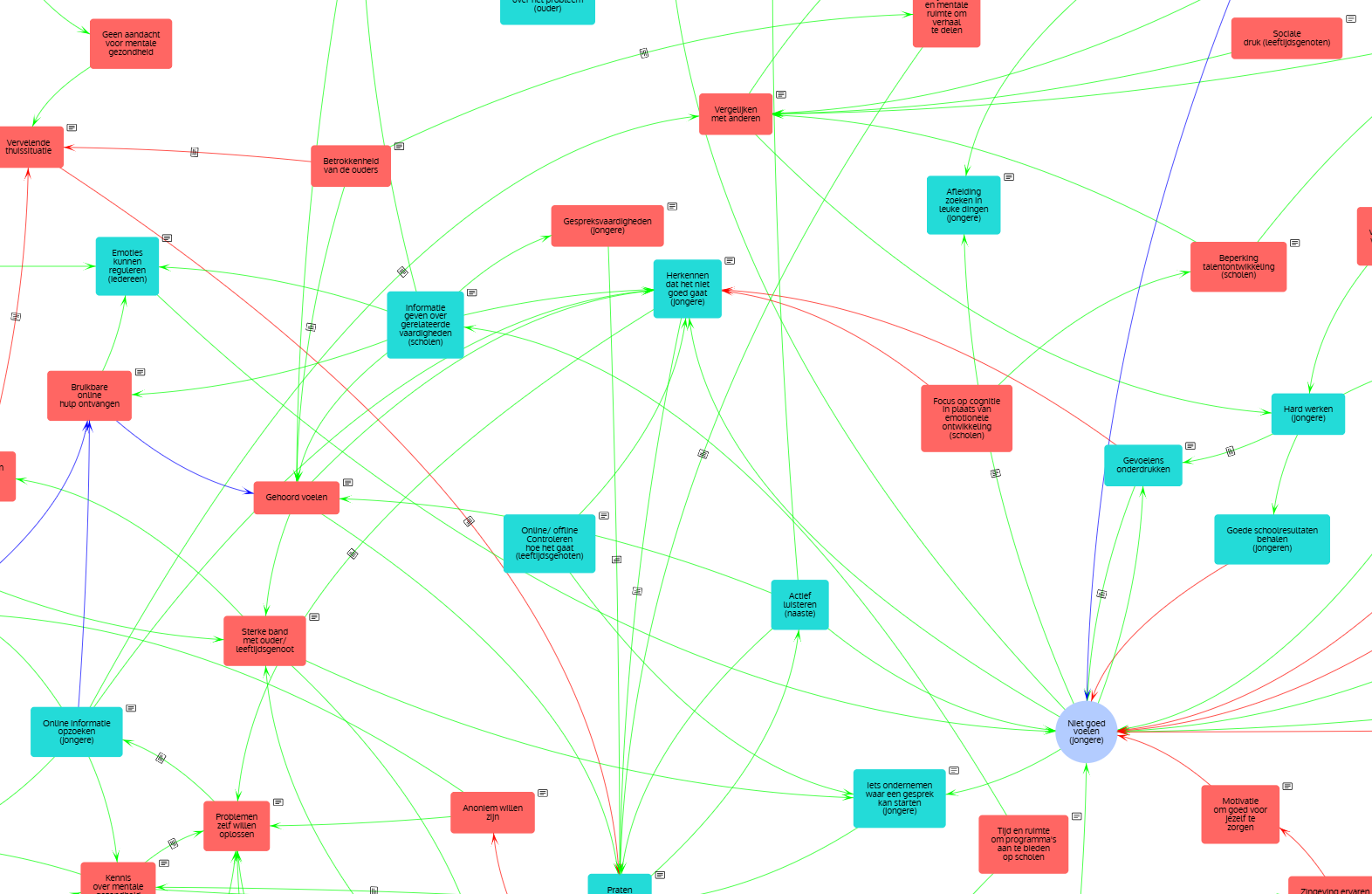
Adolescence and young adulthood are critical periods of vulnerability to mental health challenges, with many teenagers in the Netherlands reporting such issues. Despite this, young people are among the least likely to seek formal help, often turning to informal sources such as social networks or social media. While formal help-seeking behaviours have been extensively studied, research into informal help-seeking and its systemic dynamics remains limited. Reach Out Right addresses this gap by engaging young people as citizen scientists, ensuring their lived experiences shape the project’s findings and solutions.
Being part of IMPETUS was instrumental in transforming Reach Out Right from an idea into a fully realised project. The funding, training, and mentoring provided by IMPETUS equipped the team with the tools and strategies needed to maximise impact and navigate potential challenges.
Reach Out Right is broadening our understanding of informal mental health support systems through the involvement of the wider community and a diverse range of stakeholders. The project team plans to share its findings with stakeholders to spark open conversations about mental health, inspire further research, and develop impactful behavioural interventions. Reach Out Right aims to contribute to a brighter, healthier future for young people by empowering various actors to implement these solutions.
